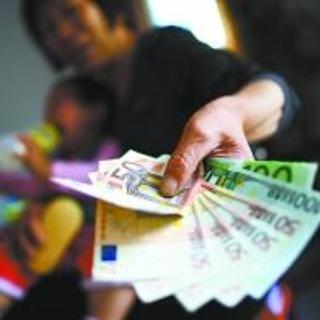
介绍:
The sound of children reading aloud livens up an otherwise quiet and remote mountain village-this is Huaitang in the southern part of Anhui province.
Huaitang Primary School is the only school in the village. Like most schools located in the country's impoverished mountain villages, the three-storey school building looks shabby from the outside, with some of the windows and doors broken.
The school has only 20 students, all studying in the same 40-square-meter classroom. One particular 8-year-old boy demands the attention of anyone looking in. He keeps talking, asking questions and even bargains with teachers about his homework.
His name is Hu Renxing. Unlike some of his classmates, he was born in Italy and went to school there up until last year. Now he lives with his grandparents in the village. But his 5-year-old sister is still living in Italy with Renxing's parents.
Renxin's teacher Lin Zhiyun is impressed by this kid.
"Hu Renxing has a very active mind. He often bargains with me when I assign homework to them. Unlike other typical Chinese children who are afraid of teachers and not particularly close to teachers, Hu Renxing thinks he is equal with me and treats me like a friend. I think this is due to the western mode of education he received in Italy. For example, when I talk with him about his homework, he likes to hold onto my shoulder like I'm his buddy."
Unlike their counterparts in the cities, from the age of 4, pupils in rural areas learn how to make their own way home and do not need to be picked up by parents after school. Renxing has got used to this and even enjoys his time going home alone after school.
In contrast to living in big Chinese cities where people barely know their own neighbors, here in this little village everyone is familiar with one another. So, on his way back home, this curious and talkative boy often stops to talk to other children, neighbors and even the village's cleaning lady; something he simply couldn't do in Italy. Renxing quite enjoys wandering around and exploring this little village.
Every day around 5 pm, Hu Renxing's grandfather, Hu Yongyang, finishes his daily routine of farming and gardening, and then prepares for his grandson to return from school.
Yongyang and his wife were part of the first generation of migrants to work in Italy. After returning home from Italy, Yongyang spent a year building his new house.
"It cost me about 800,000 yuan,"
That is about 129,000 US dollars.
"I designed it myself, combining both Chinese and Italian architectural styles."
Upon walking into this three-storey villa, the first thing that leaps out is an elaborate wine cabinet, which displays all kinds of wine from different countries, a rare scene you would expect to see in China's remote countryside. The kitchen is also in western style and fitted with an oven. It features all the regular appliances you would see in a European house.
In the living room, there is a coffee table. When guests visit, Yongyang would treat them with tea or coffee depending on their preference. Sometimes he even offers villagers who've never been abroad a taste of the foreign drink and snacks he has brought back.
After living in Italy for almost 20 years, Yongyang's dietary habits have changed somewhat.
"I adapted to local life in Italy very quickly. Now, even though my wife and I are back in China, we still often cook Italian dishes, such as pasta and grilled steak. Besides changing my eating habits, I became tidier. You know, usually houses in the countryside are a bit messy and dirty. People like to throw garbage around carelessly. But you can see that my house is very clean. This has become a living habit."
On the wall are photos that he and his children took in Italy and other European countries. Looking at the first photo he took in Rome in 1994, Yongyang recalls the tough old days that he experienced.
"I had to work for 16 hours every day when I first arrived in Italy in order to survive, and I lived in a very small dark attic without lights. I still remember the first time my eldest son returned home from Italy was 12 years later; he had no money to come back. But at that time I didn't feel pain or sadness, because day and night all I was thinking about was making money so that I could send it back to my family and let them live a better life. It was this faith that sustained me through my hardships. But now the younger generation usually thinks it's too hard to hang in there. They've never experienced the hard times we went through."
Now, Yongyang has his own leather-processing factory in Italy, which brings him millions of yuan or hundreds of thousands of dollars each year in income. But he has already handed the running of the factory over to his two sons and one daughter who are now in Italy.
The garden in front of the house is where Hu Yongyang spends most of his time every day. He has planted all kinds of flowers and fruit trees in his garden and keeps fish in a little pond. After struggling to survive for almost 20 years overseas, this is the time for Yongyang to rest and enjoy his retirement at home.
Opposite the new house is the old house that the family lived in before. It looks shabby and rundown; especially in contrast to the new abode. But Hu Yongyang doesn't have any plans to tear it down any time soon. In fact, he plans to keep it so that his offspring can know that their parents and grandparents endured tough times in order to give them the life they have today.
完整文稿请关注我们今天的微信或登录:http://english.cri.cn/7146/2014/06/19/3481s832454.htm
大家还在听

